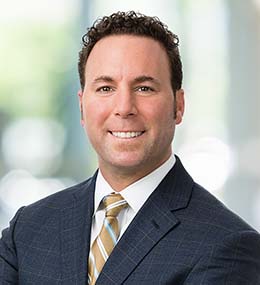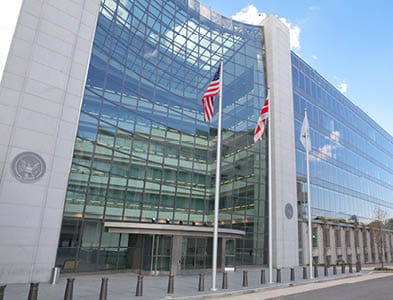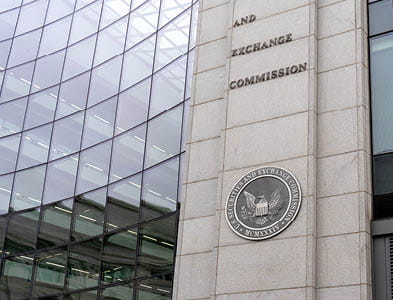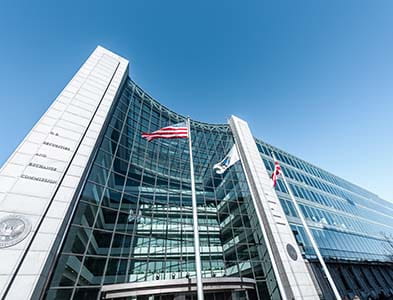Adapting to SEC's Heightened Scrutiny of Private Funds
Adapting to SEC's Heightened Scrutiny of Private Funds
Steps advisers and chief compliance officers can take now for future SEC regulatory changes and increased focus on private funds.
This article was co-authored by Joel Cohen, Stout Managing Director, and Jaclyn Grodin, counsel at Goulston Storrs PC.
U.S. Securities and Exchange Commission Chair Gary Gensler's ambitious agenda to enhance overall market transparency has increasingly focused on the SEC's role in regulating the $18 trillion private funds industry.
The commission recently announced that strategic and more comprehensive oversight of private investment funds was one of its top 2022 examination priorities,1 a disclosure that followed Gensler's repeated public statements emphasizing that private fund exposure is not limited to institutional and wealthy investors but increasingly includes state and local pensions.
As Gensler and various SEC commissioners have stressed, these pensions ultimately fund the retirements of working family beneficiaries, i.e., the everyday American investor. Moreover, hedge funds hold trillions of dollars in listed equities, and private equity funds are heavily involved in nonbank lending, restructurings and bankruptcies, giving them substantial influence over the broader economy and Main Street America.2
Viewed through this lens, then, protection of interests affected by private funds falls squarely within the SEC's core mission and the agency has accordingly elevated its efforts to ensure compliance with fund documents, disclosure of conflicts of interest and fulfillment of advisers' obligations to act in the best interests of fund limited partners.
Although many industry observers and participants disagree with Gensler's assessment concerning the nature and scope of the impact on unsophisticated investors indirectly exposed to private funds, advisers who choose to wait for resolution of that dispute before taking action risk higher long-term costs and potential short-term investor dissatisfaction or redemptions.
Recent SEC Activity and Impact
The SEC's enhanced focus on private fund regulation over the past quarter should motivate fund advisers and compliance personnel to consider whether and how easily their policies and procedures can adjust to future rule changes concerning disclosures, valuations and investor transparency, and how SEC exam staff would consider a firm's current program in light of the commission's announced priorities. Why? The SEC is further formalizing its priorities and beginning to take action.
On March 30, the Division of Examinations released its 2022 examinations priorities report,3 highlighting the SEC's focus on investment advisers who manage private funds and reiterating the areas of concern on which exam staff will focus, including calculation and allocation of fees and expenses, disclosures of conflicts of interests, and risk management, including cybersecurity and data privacy.
The report reiterated Gensler's stated concerns with special purpose acquisition companies, or SPACs, and the conflicts created through certain private fund investments in SPACs. Exam staff will also continue to pay close attention to attempted waivers or limitations on an adviser's fiduciary duty to investors and likely require revisions to offering documents that deviate from the Advisers Act fiduciary standard.
What remains clear is that even absent formal rule changes, exam and enforcement activity in the private fund space will continue to increase and intensify under Gensler's watch.
In June 2022, the SEC charged Energy Capital Partners Management LP with violations of Sections 206(2) and 206(4) of the Advisers Act for allocating undisclosed, disproportionate expenses to a private equity fund it advised.4
According to the SEC's order, ECP led a take-private transaction in which it agreed that third-party co-investors would not bear expenses related to the credit facility used to finance the deal. As a result, the order found that ECP disproportionately allocated deal-related expenses to a fund it advised without disclosure, in violation of the fund's organizational documents.
The order highlighted that the fund's limited partners "include pension funds, foundations and endowments" among other investors, demonstrating that the Division of Enforcement may incorporate Gensler's policy objectives into its settlement orders, and further found that ECP failed to implement adequate compliance policies and procedures regarding expense allocations.
Notably, the private equity fund at issue raised more than $5 billion from investors and deployed nearly $1.5 billion in capital to the transaction.
ECP agreed to a $1 million penalty without admitting or denying liability and voluntarily repaid more than $3.3 million to the fund, relatively small amounts given the size of the fund and scope of transaction.
The ECP matter should signal to private funds that even relatively minor disclosure deficiencies can result in significant investigatory activity and intrusion, and potential investor and capital raising disruption. This example warrants close examination not only of written compliance programs but of a fund's implementation of relevant policies and procedures.
Although formal enforcement activity in the private fund space has been somewhat limited through the first half of 2022, the report noted that exam staff made more than 190 referrals to the Division of Enforcement in fiscal year 2021.
As the commission moved into fiscal year 2022, the report explained: "We anticipate there will be more money returned to investors, and there will be additional referrals to Enforcement resulting from our FY21 examinations."5
It is therefore likely that enforcement activity resulting from examination findings will increase as investigations continue to conclude and enforcement staff make their recommendations.
How Private Funds Can Adapt Ahead of Formal Rule Implementation
Although the primary responsibility to develop and maintain a compliance program generally rests with a firm's chief compliance officer and its staff, implementation of effective, flexible and practical policies and procedures that align with the regulatory direction Gensler is moving the commission toward require firmwide input and participation.
When compliance personnel silo themselves, by choice or force, and do not appreciate and incorporate the realities of private fund management into their work, a disconnect between policy and practice is more likely to occur. Likewise, compliance programs must be designed for maximum ease in pivoting and adapting to an evolving regulatory environment and an increasingly diverse universe of assets.
Given industrywide concern with the proposed sweeping amendments to the SEC's regulation of private funds, including whether the commission has the authority to adopt certain proposed rules in the first instance, final rule changes may be narrower than initially proposed.6
Growing investor engagement with fund transparency and the implementation of enhanced disclosure obligations in some form or another, however, signal that investment advisers would be well served to begin closely outlining potential changes to their compliance protocols.
What compliance steps can advisers and chief compliance officers take now to account for likely regulatory changes and shifting investor attitudes?
Testing
Written policies and procedures should incorporate testing on a routine basis at set intervals that can easily detect unusual patterns or market activities made more frequent by the COVID-19 pandemic, supply chain disruptions and other logistics challenges.
Compliance personnel ought to seriously consider whether certain transactions or events at the firm or fund level, such as loss of key personnel/customers or down-round financing, or changes to broader domestic or global economic factors (e.g., volatility in the energy markets, food shortages or worker strikes in particular industries such as mining) should trigger enhanced testing with specific deficiencies in mind.
In addition, an analysis of the sufficiency and resiliency of internal and external audit procedures and an examination of whether the firm's current auditor is properly suited to incorporate potentially enhanced regulatory audit requirements should be on the agenda.
Investor Transparency
It is clear that Gensler aims to dramatically tighten the SEC's control over the private funds landscape, primarily to enhance the scope and accuracy of disclosures for the ultimate benefit of pension fund beneficiaries and other similarly situated investors indirectly exposed to private funds.
Fund advisers should assess whether additional preemptive disclosures in the areas of fees and expenses, conflicts of interests and portfolio-company level performance can be incorporated into existing investor reporting programs and understand any associated costs and burdens.
If the costs or burdens are excessive, now is the time for advisers to analyze how to streamline processes and potentially update certain related policies and procedures to adjust for such inefficiencies.
Value-Add Investors
Value-add investors refer to clients or fund investors that are corporate executives or financial professional investors who may have material nonpublic information. Compliance staff and advisers should review their policies and procedures for interacting with these investors and key persons, and ensure that appropriate safeguards are in place to manage the risks associated with possession of material nonpublic information vis-à-vis value-add investors.
Maintenance of dynamic databases of any value-add fund investors or potential investors, and discussion of the applicable policies with investor relations staff, may clarify fund processes concerning value-add investors.
Further, compliance programs should incorporate periodic reviews of rules and policies regarding management of relationships with value-add investors. The policies should also ensure that communications between the fund and these investors/potential investors are logged and that related research is appropriately marked.
Alternative Data Providers
Private funds are increasingly utilizing alternative data in researching and executing on investment options. While this data does not necessarily contain material nonpublic information, although it may, it goes beyond traditional sources of information that investment professionals, including at private investment funds, historically relied upon such as financial statements, press releases and SEC filings.
Notwithstanding the growing prevalence of alternative data in private fund investing, exam staff noted in an April 2022 risk alert that policies and procedures related to the management and utilization of alternative data are outdated or nonexistent and that compliance weaknesses in this area could trigger violations of the Advisers Act.7
Accordingly, chief compliance officers should engage in a comprehensive review of written compliance protocols concerning alternative data while simultaneously documenting its due diligence of data providers, including the sources of data, processes for collection, whether the data contains material nonpublic information, and whether the fund provided appropriate regulatory and/or investor disclosure based on its use of the data.
This diligence should be revisited regularly to ensure continued compliance with policies and procedures as well as to determine whether any material changes to the data source or collection method have occurred, potentially triggering reporting obligations.
Ongoing conversations between fund management and compliance personnel will assist in determining the risks associated with alternative data and how to effectively utilize such data in a manner that accords with a fund's compliance program.
Quarterly Disclosures
The proposed rules include amendments to reporting and audit requirements for private funds. While it remains very possible that any final rules will include less expansive disclosure obligations, advisers should nonetheless assess their current capacity to provide comprehensive quarterly financial reporting within 45 to 60 days following the end of the quarter.
The assessment should evaluate the ability to report on performance, fees and expenses, compensation, and quarterly and annual net returns. This should include consultation with the finance and audit committees, as well as guidelines for dissemination of investor communications concerning the enhanced disclosures.
Looking Ahead: Continued SEC Focus on Private Funds
The SEC's regulation of private funds through rule amendments and exam and enforcement activity continues to be a top priority for Gensler and his staff.
Although the final scope of any rule changes in this space remains unknown, private funds would be well served to evaluate the impact any or all of the changes may have on their approach to compliance, management and investor relations.
Considering the proposals in the context of a fund's current written policies and procedures, as well as its everyday practices, will help advisers and compliance staff understand the impact that the proposals may have on their business and relationships with investors, and help appreciate and manage potential risk.
It is clear that while Gensler's priorities remain focused on private funds, relying on outdated compliance approaches may well result in regulatory intervention and enforcement action. Private funds that preemptively prepare for increased oversight will be best suited to pivot their compliance programs to accord with the new regulatory landscape, whatever that may be.
- 2022 Examination Priorities Report, Division of Examinations
- Proposing Release, Private Fund Advisers; Documentation of Registered Investment Adviser Compliance Reviews
- "SEC Division of Examinations Announces 2022 Examination Priorities: Enhances Focus on Private Funds, ESG, and Operational Resiliency," March 30, 2022
- "SEC Charges Private Equity Adviser for Failing to Disclose Disproportionate Expense Allocations to Fund," June 14, 2022,SEC Order: .
- 2022 Examination Priorities, at p. 3.
- Reopening of Comment Period for Private Fund Advisers
- Investment Adviser MNPI Compliance Issues




